Gordon Reid: Tennis helped me through dark moments
- Published
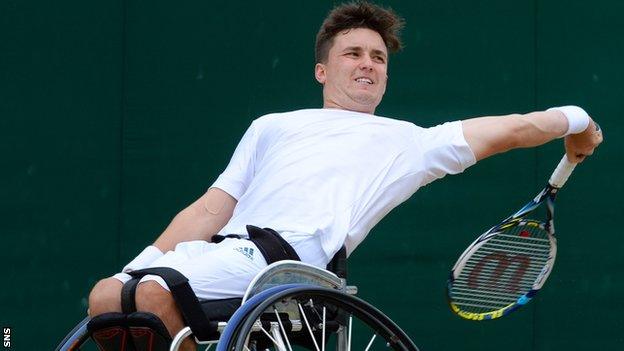
Gordon Reid is the world's top ranked wheelchair doubles player
"You can focus on what you can do instead of worrying about things you can't do and what's been taken away from you."
What was taken away from Gordon Reid was the use of his legs. A devastating blow for anybody but particularly cruel for a 12-year-old boy.
Between the ages of six and 12, Reid could often be found honing his skills on the courts of Helensburgh Lawn Tennis Club. The sport had become an important part of his life, but his life was about to change.
"I had a neurological condition in my spine called transverse myelitis, which basically left me paralysed from the waist down," Reid recalls. "I was in hospital for six months."
Reid, now 24, was determined that his life would not be shaped by his disability and that he would continue to play the sport he loved.
"For me, it was just a case of wanting to get back to living a normal life and enjoying myself as much as I could," Reid told BBC Scotland.
"I found out about wheelchair tennis when I was leaving hospital. I really just wanted to get back involved in sport because sport was such a big part of my life.
"I tried it once and loved it, loved being able to get back out on the tennis court. I think it was a big part of my rehab as well.
"It helped me gain fitness and become more active again after I had my disability. Obviously it's a huge part of my life now."
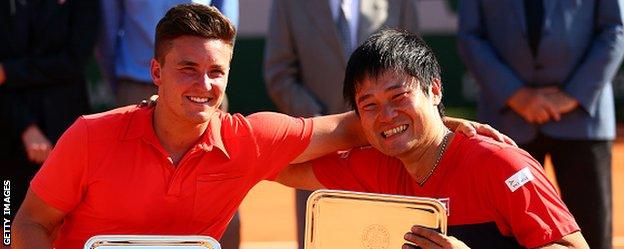
Reid captured his maiden Grand Slam title at the 2015 French Open alongside doubles partner Kunieda
Dark moments
Wheelchair tennis would provide Reid with the platform to achieve more than perhaps he could ever have hoped in the sporting world, but before he tasted success, he had to work through some difficult times while facing up to life without the use of his legs.
"There were a lot of dark moments," he recalled. "I could see all my family and friends and how much it was affecting them as well.
"It was a difficult period for all of us: 12 years old is a young age for something like that to happen to you.
"So there were a lot of dark moments and periods of my life where I was quite down and finding it quite hard, but I think tennis has definitely been a big help to me and helped me overcome a lot of the hurdles that have been placed my way in life.
"Of course, because I love sport so much, I wanted to get back involved with sport as much as possible.
"I think it was just about that: making the choice of not letting the condition defeat me and just trying to turn things back around."
His existing talent and experience of tennis meant that the move into wheelchair tennis was an obvious one, but adapting to the new game was not always easy.
"It's really just about timing of moving the chair and making sure your chair is in the right position to get your body in the right position to make the shot," Reid explained.
"It was definitely a struggle at the start. It can be quite frustrating, especially when you're used to being able to just adjust your feet at the last moment or move your body position at the last moment.
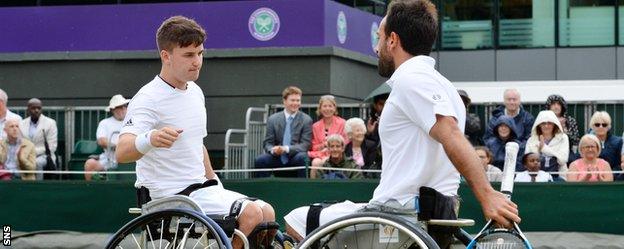
Reid and Michael Jeremiasz finished runners-up in the wheelchair doubles at Wimbledon
"It's definitely something that takes a bit of getting used to. It's just like any other skill I suppose - the more you do it, the more you practice, the better you get at it. It just all came with time."
Reid took up the game in 2005, became the youngest ever British national singles champion in 2007 and, by 2008, he was representing Great Britain at the Paralympics in Beijing at just 16 years old.
"It was a bit of a surreal experience because one day I was in doing my Highers with my friends in school and the next day I was flying around all over the world to compete. It felt like I was leading a bit of a double life."
Grand Slam glory
He would go on to represent GB again at London 2012, making the doubles quarter-finals. In 2013, he beat the world's top three players to rise to number four in the singles rankings, becoming the highest-ranked British wheelchair player in history.
A serious contender in both the singles and doubles formats, he made his Grand Slam breakthrough this year in splendid style.
The Scot partnered Shingo Kunieda of Japan to victory in the French Open doubles, his maiden Grand Slam title.
Reid teamed up with Michael Jeremiasz of France for Wimbledon and made it all the way to the final before losing in three sets to France's Nicolas Peifer and Argentina's Gustavo Fernandez.
With France's Stephane Houdet by his side, Reid added a second Grand Slam by taking the doubles title at the US Open in New York, beating Peifer and Jeremiasz.
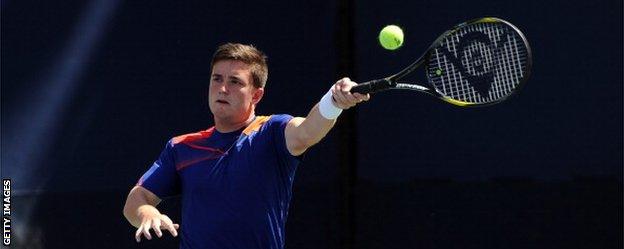
Reid partnered France's Stephane Houdet to the US Open doubles title
After this week's victory at the Masters event in California alongside Jeremiasz, Reid has risen to the top of the world doubles rankings and he is determined to stay at the top of the game.
"There are only two ways you can go when you're number one," he suggested. "That's to stay there or go back down again.
"Everybody will be aiming for me and targeting me, but it's a nice pressure to have because you know you're at the top and you're the best player in the world in doubles.
"It's always been one of my main goals in my career to try and make it to number one. I never really thought it would happen this early to be honest.
"I've done it in doubles, I'll be looking to try to do it in singles as well."
Given how far he has come, you would not bet against him.
- Published15 November 2015
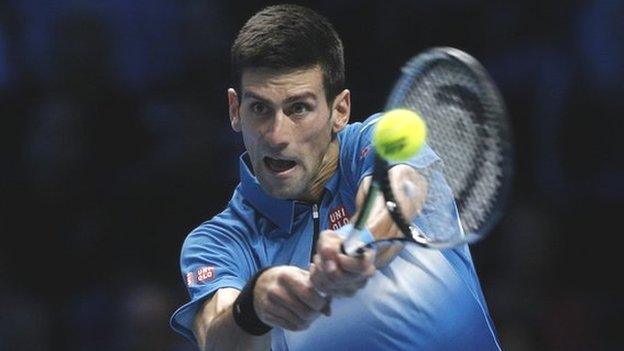
- Published15 November 2015

- Published14 November 2015
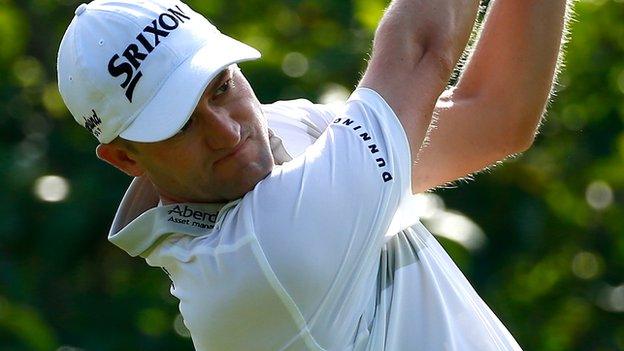
- Published8 November 2016
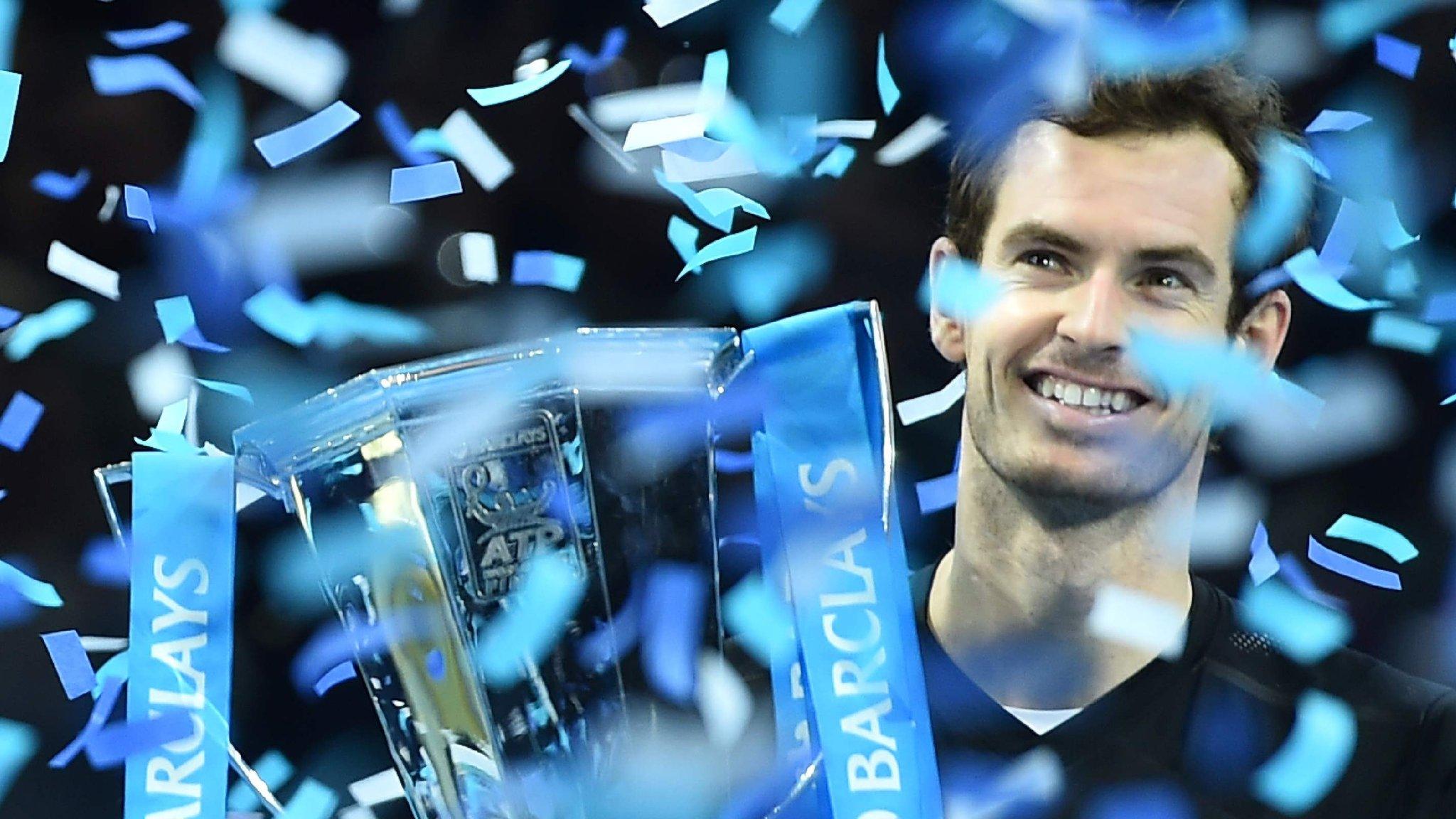
- Published17 June 2019
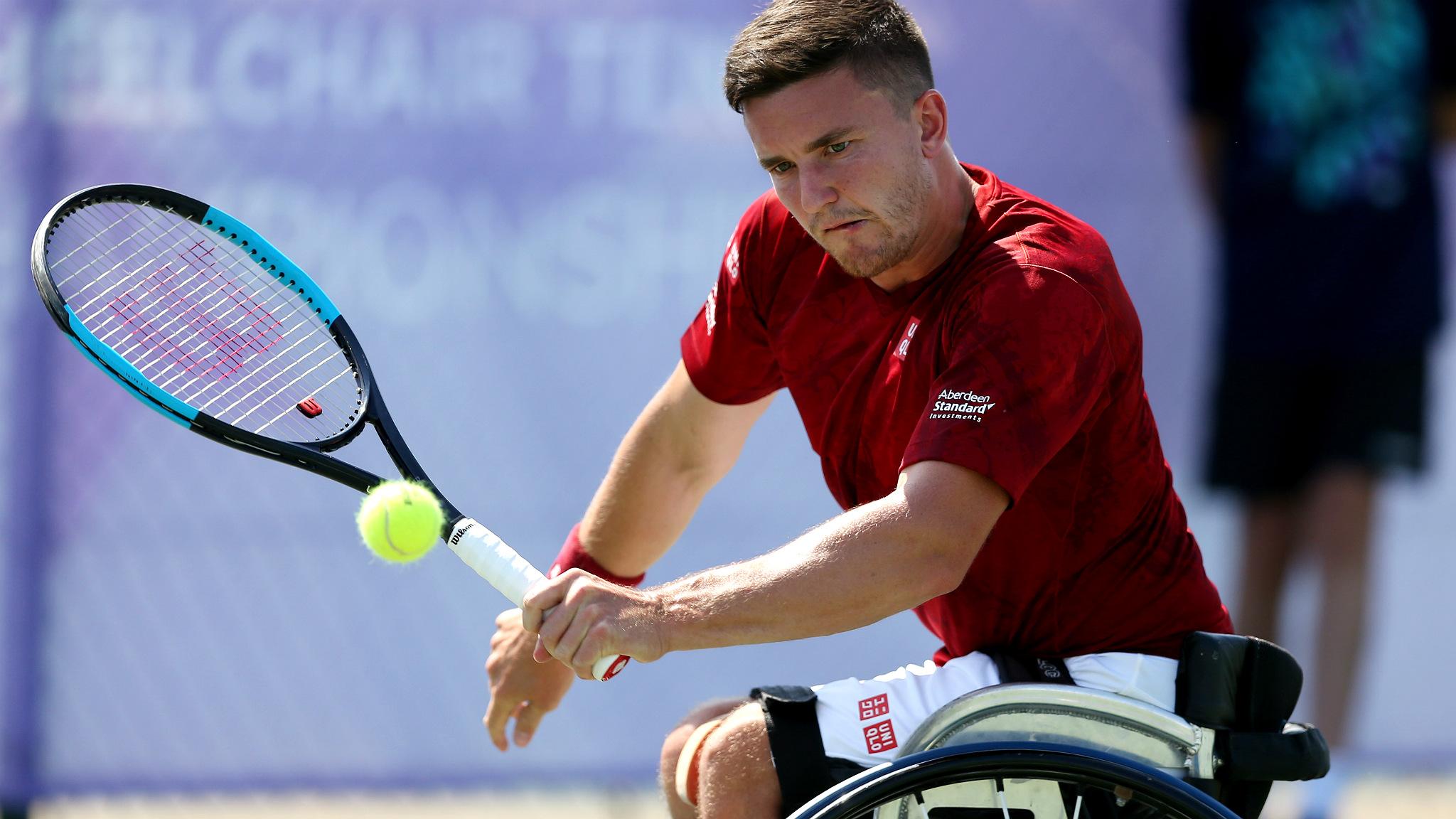
- Published19 July 2016
